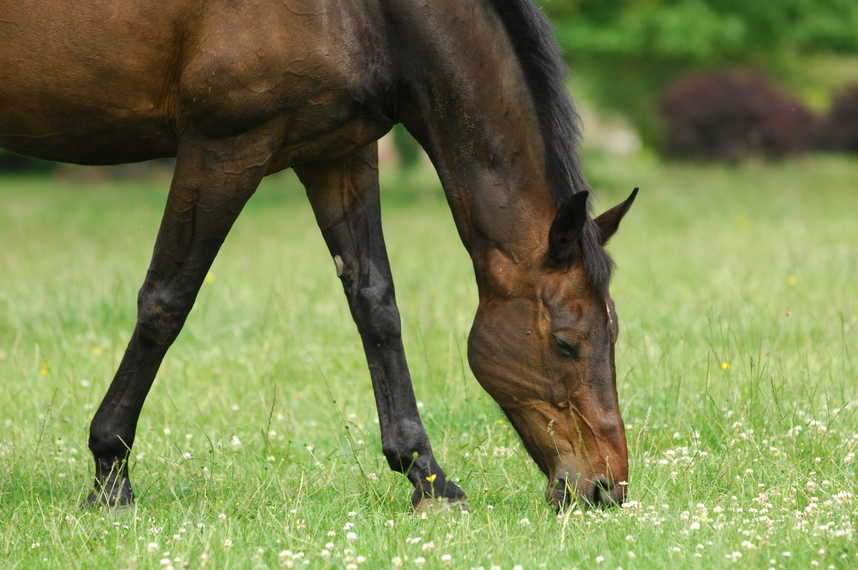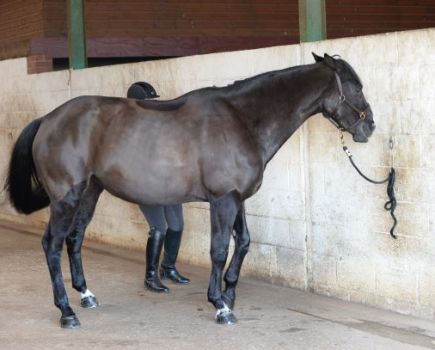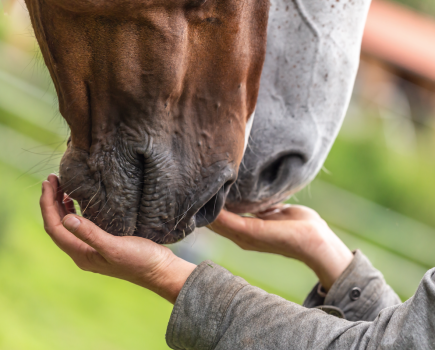In partnership with Allen & Page
It can be difficult heading into the spring knowing your horse might need to lose some weight, especially if they live out full time. Allen & Page nutritionist Jo Palmer shares how you can manage this tricky situation.
If you are aware that your horse might need to lose weight heading into spring, it’s great that you’re thinking ahead and taking steps to control their weight before the flush of spring grass.
It is much easier and healthy to stop them from gaining excess weight than it is to try to encourage weight loss once their waistline has already expanded. Too much grass will inevitably lead to unwanted weight gain and increase your horse’s risk of developing serious conditions such as Equine Metabolic Syndrome (EMS) and laminitis.
3-step weight loss plan
1. Restrict grass intake
This is the most important management technique for keeping good doers at an ideal bodyweight. Turning out in a paddock that has been previously grazed by other horses, strip grazing, using a grazing muzzle and spending some time in a grass-free area will all help to control how much grass your horse is able to eat and therefore reduce their calorie intake and help prevent unwanted weight gain.
2. Implement a track grazing system
This helps to reduce your horse’s grass intake as well as make them more active, as they have to move around to graze, go to their shelter and access water.
3. Don’t starve them
When grazing is restricted, it is important not to starve your horse. Even horses needing to lose weight still require at least 1.5% of their bodyweight in fibre per day. If your horse is stabled or kept in a grass-free area at any time, they should be offered small amounts of soaked hay regularly. Soaking hay for 12-16 hours will remove most of the water-soluble carbohydrates it contains, which will allow your horse to receive the essential fibre they need for digestive health, but with a reduced calorie level.
It’s all about balance
Although restricted grazing alone is likely to meet your horse’s calorie needs, it will not provide a balanced diet and essential nutrients, plus some vitamins and minerals may be missing.
Feeding a low energy, balanced feed at the minimum recommended amount for their size and workload will help ensure your horse receives the balanced diet they need, without the calories they don’t.
With some fine spring weather and lighter evenings, now is the perfect time to increase your horse’s workload, too. Even if it is just an extra hack or lungeing session a week, any extra calories they use up through exercise will help to prevent weight gain.
Meet the expert: Jo Palmer has a BSc (Hons) in agriculture with animal science and is a member of the Allen & Page nutrition team. Her experience as a nutritionist helps guide horse owners on feeds and feeding.
Check out our subscription offer








